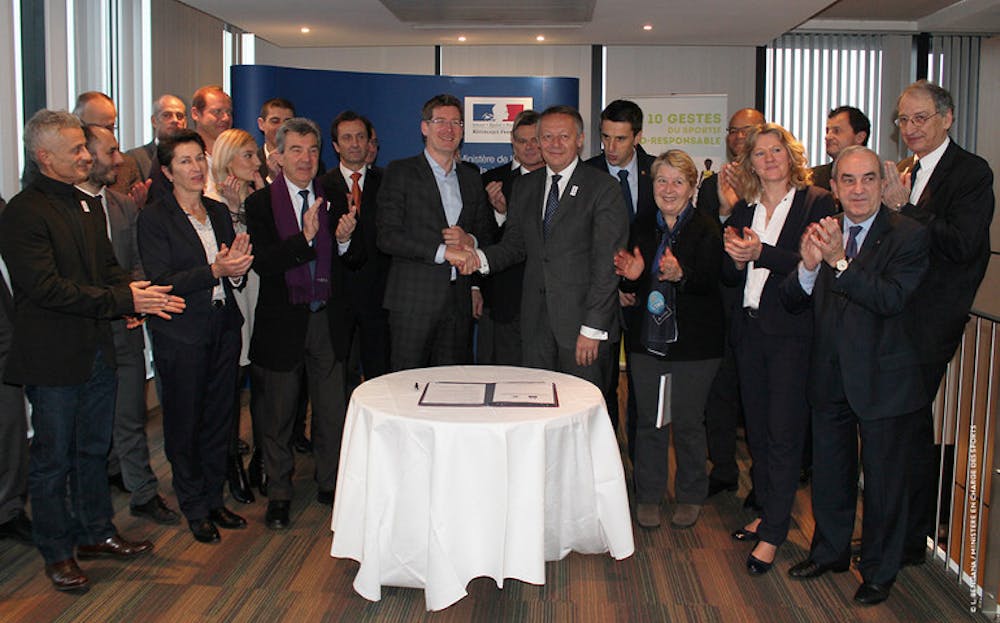Voir aussi
Road to Roland-Garros 2018: the ball-kids selections (chapter 1)

The FFT underlined its commitment to green issues by signing a charter seeking to reduce its environmental impact.

On 12 January 2017, Roland-Garros made a series of 15 environmental commitments at the signing of the Organisers of Sporting Events in France’s Environmental Charter, developed in conjunction with the French Ministry of Sport and the WWF (World Wildlife Fund).
The French Tennis Federation (FFT) underlined its commitment to green issues in 2008 by signing, in conjunction with the Ministry of Sustainable Development and the Agency for the Environment and Energy Management (ADEME), a charter seeking to reduce its environmental impact. As proof of the solidity and lasting nature of that commitment, in 2014 the French Open became the first French sporting event to receive ISO 20121 certification.
Two years later, France’s Grand Slam event went one step further in pursuing this sustainable approach by adhering to the 15 commitments framed in the Organisers of Sporting Events in France’s Environmental Charter, which has been developed with the Ministry of Urban Affairs, Youth and Sport and the WWF. The charter was signed on 12 January at the Ministry of Sport and in the presence of the organisers of 19 other major sporting events in France, among them the Tour de France, Paris 2024, the 2017 World Handball Championships...
